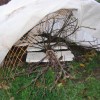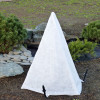Features of the shelter of roses for the winter in the middle lane
Content
When to shelter
Proper preparation of roses for winter is, first of all, compliance with the terms of each of the components of the procedure. In this regard, gardeners often have a question: when is it worth sheltering roses for the winter in the middle lane?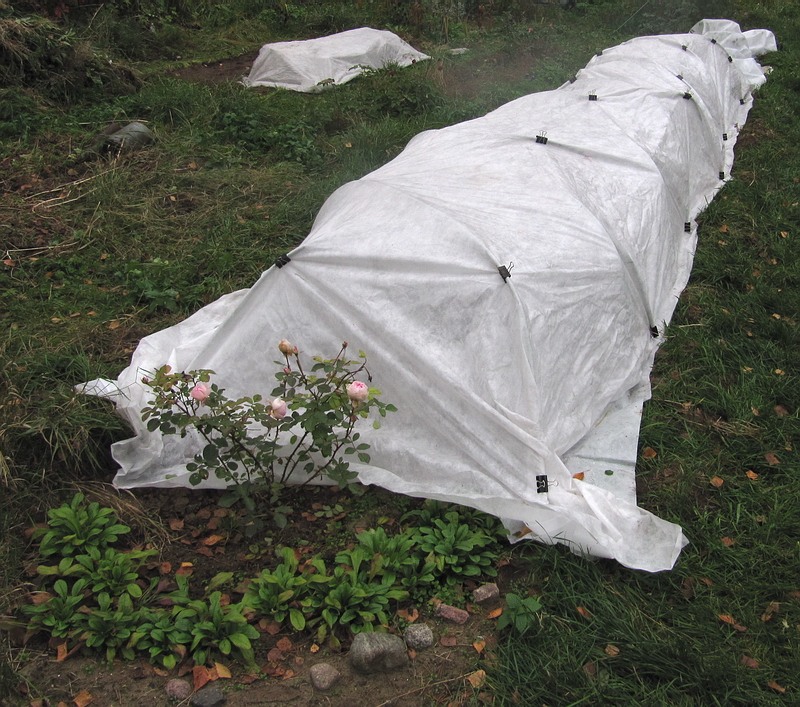
First, do not try to cover the flowers as early as possible. Such a mistake only activates the growth of young organs. It is better to "warm" the culture when stable frosty weather is established. In the middle lane, as in the north of the country, the optimal time for shelter is mid-autumn. In regions with a warm climate, winter is usually "delayed", so it is permissible to wrap roses with special material a couple of weeks later.
Shrub flower forms can be "insulated" by dropping. After pruning, the plant is mulched with earth to a height of up to 0.4 meters, and then covered with dry leaves.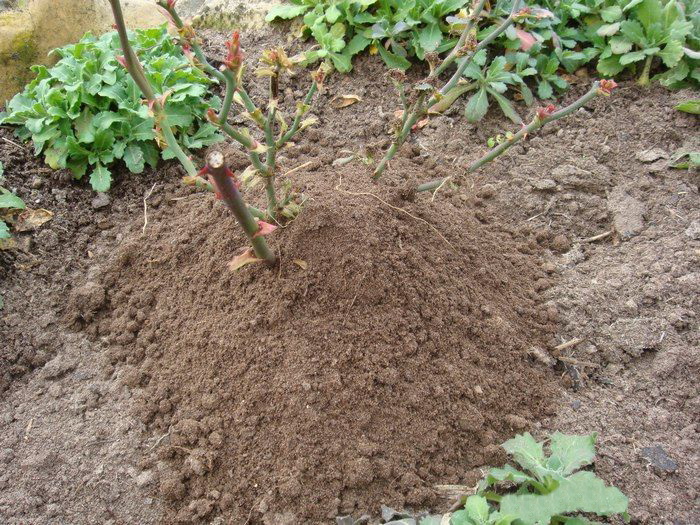
As a support, plastic vases with special holes for drainage are usually used. The root system is covered with needles.
During the covering process, the soil and materials for the procedure were dry, which will prevent excess moisture from retaining on other plant organs. Otherwise, the culture is threatened with rot and fungal infection.
Video "Cropping and Covering for the Winter"
From the video you will learn how to prune and cover roses for the winter.
Pruning rules
When to prune roses? As for the timing of pruning, experts recommend that the procedure be carried out no earlier than in the middle of autumn. It is then that the air temperature does not rise above 8 ° during the day, and approaches 0 at night. It is during this period that the ovaries will no longer become full-fledged flowers, and those flowers that have formed will only interfere with the plant preparing for winter. After all, the presence of flowers makes it impossible to slow down the metabolic process inside the plant organism. Cut roses stand perfectly in a vase for about a week, but if they "survived" the night frost, their safety is reduced by a couple of days.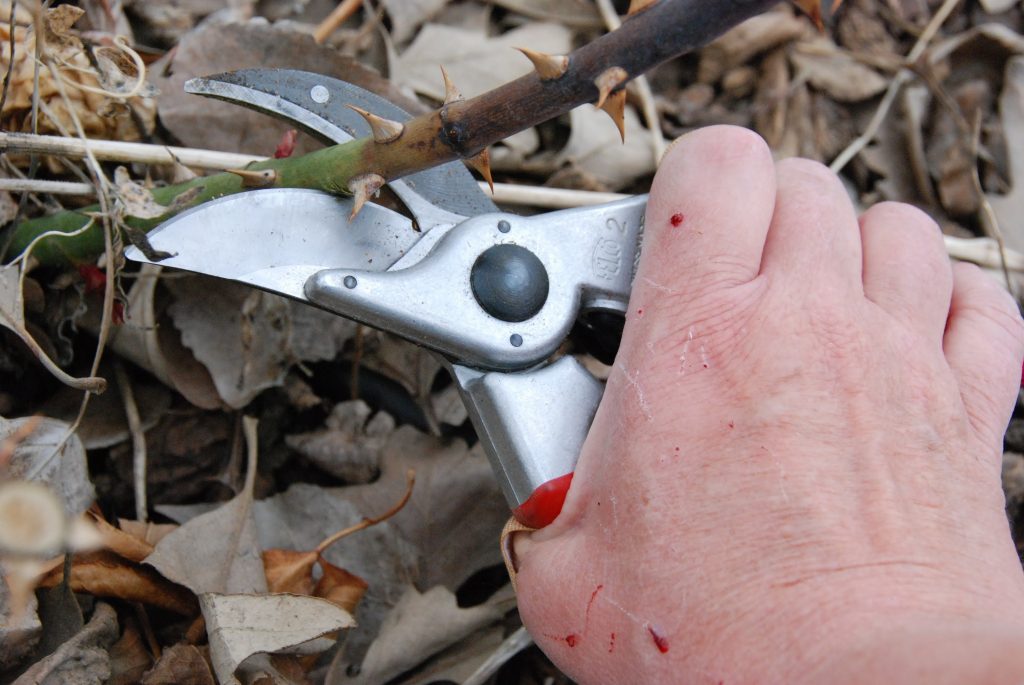
Roses must be cut to the middle of their length. Very young stems should be eliminated altogether. Newly formed vines are easy to spot by their purple color and flexibility. When pruning such a vine with a pruner, it actively releases juice. Also, all leaves on the stems are subject to elimination. This recommendation is valid for any type of rose.
The perfect tool for pruning flowers for the winter is a sharp pruner. A lopper is also suitable for thick branches. Leaves are trimmed with pruners or torn off by hand.
"Garbage" formed as a result of trimming must be immediately removed from the site. If you leave the cuttings in the flower bed, they will start to rot and lead to the development of fungal diseases.
After the total elimination of leaves and young shoots, the bushes of culture should be examined and checked if they are "sick". Indeed, often after the autumn rainy season, a fungus forms on the organs of the plant. It manifests itself either in the form of black spots or as small red dots, it all depends on the type of microorganism that provoked the disease. The fungus prefers old branches and is localized near the root collar.
You should not clean off the traces of the fungus with a knife, because in this way you can easily cause irreparable harm to the culture.As a result, the individual will not be able to overwinter. The correct solution would be to treat the area with copper sulfate or Hom remedy. However, for the treatment procedure, it is worth choosing a dry and calm day.
How to bend correctly
To protect the branches that are not pruned from frost, it is worth bending them down. As a result, the bush will be able to endure the winter under a thick layer of snow. After all, no shelter of roses can protect flowers as reliably as snow.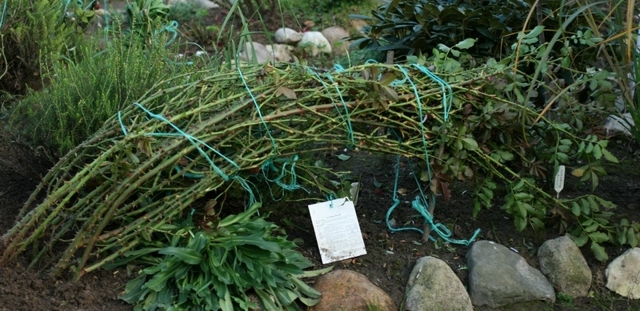
Those varieties of roses that are capable of curling and trailing should be cut from above and removed from the supports. After that, such plants are placed on spruce branches or polystyrene and covered with oak leaves. It is the oak leaves that do not rot even with high humidity, which will save roses from active growth.
You can put some kind of covering material on the foliage layer. Scrub roses bend down and bind in the same way as raspberries: by pulling branches towards each other or supports.
It is worth bending roses gradually. It is better to do this on similar days or in the second half of the day, because at this time the shoots are especially flexible.
What to cover
When wondering how to cover roses for the winter, you should think about what material is best to cover flower bushes.
An ideal covering material has a number of positive characteristics.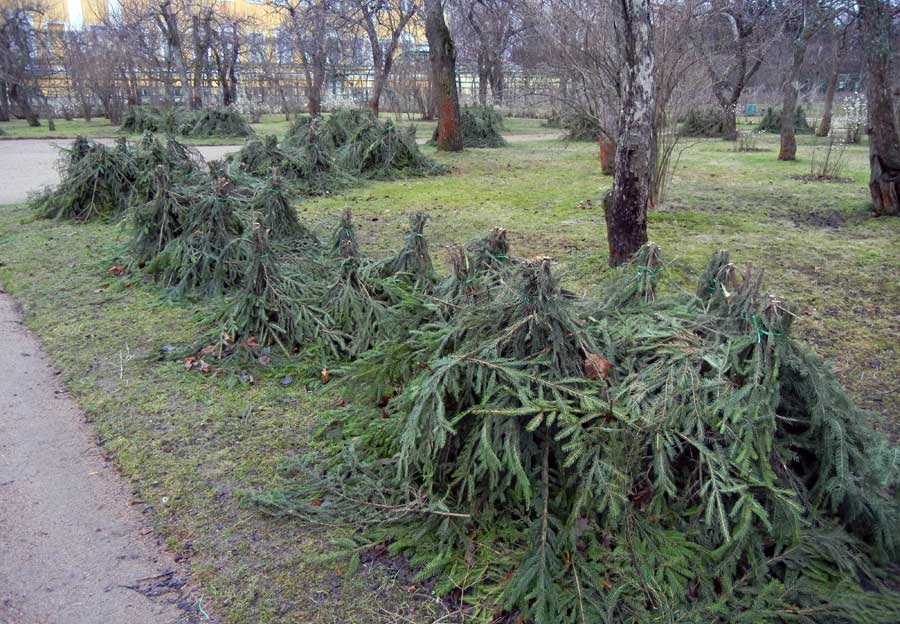
Firstly, for a certain time it is able to trap snow, which will prevent premature evaporation of moisture from drying winds.
Secondly, the protective material prevents branches from breaking under the weight of the snow lying on them.
Thirdly, it does not allow precipitation of any kind.
Fourthly, the "correct" covering material prevents overheating of crops during thaws, and, fifthly, it maintains optimal air humidity. Thanks to this, the plants do not "mate" under the "blanket".
Spruce branches fully correspond to all characteristics, which also prevents the attack of rodents. However, unfortunately, this material is not available to everyone. But it is easy to replace it with modern materials. For example, a combination of a covering material and a strong frame.
It is also worth noting that you should not use a film as a covering material. After all, it disrupts the natural metabolic processes of the plant. It is better to use a non-woven white material (the color contributes to the fact that the roses heat up less under the influence of the sun), the density of which exceeds 60 microns.
So, sheltering roses for the winter is an essential part of the process of caring for these flowers. Therefore, it is worth adhering to all recommendations for the correct pruning of the rose garden and its protection from winter frosts.
Video "What to Cover"
From the video you will learn how you can cover roses for the winter.

